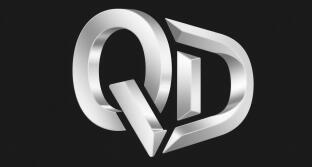When your project has strict requirements for thermal conductivity, electrical conductivity, or corrosion resistance, you can consider copper alloys. QD is a producer and exporter of copper alloy castings. We provide reliable copper casting solutions.

Characteristics of Copper Alloys
Copper is the preferred material for many industrial applications.
Thermal Conductivity
Copper alloys have excellent thermal conductivity. They are the ideal choice for manufacturing heat sinks, heat exchangers, and other high thermal conduction components. In electronic device cooling systems, copper alloy castings efficiently transfer and disperse heat.
Electrical Conductivity
Copper alloys have electrical conductivity second only to pure silver. They are widely used in electrical connectors, switch components, and conductive elements. Their low electrical resistance helps reduce energy loss and improve equipment efficiency.
Corrosion Resistance
Especially in marine environments, copper alloys (such as aluminum bronze) offer excellent resistance to seawater corrosion. They are the preferred material for ship parts, offshore platform components, and coastal industrial equipment.
Other Features
- High Strength and Wear Resistance: Some copper alloys (like bronze) maintain stable performance under high pressure and friction.
- Easy Machinability: They are easy to cast, forge, and machine. Suitable for manufacturing complex-shaped components.
- Aesthetic Appeal: The golden appearance makes them suitable for decorative art pieces and architectural details.
| Property | Description | Typical Applications |
| Thermal Conductivity | High thermal conductivity, excellent heat dissipation | Heat sinks, heat exchangers |
| Electrical Conductivity | High electrical conductivity, low energy loss | Electrical components, conductive connectors |
| Corrosion Resistance | Resists seawater, acid and alkali corrosion, long service life | Marine fittings, chemical valves |
| Mechanical Strength | High strength, wear resistant, suitable for heavy-load environments | Bearings, gears, structural components |
| Machinability | Easy to cast and machine. Adapts to complex designs | Custom parts, decorative items |
Common Copper Alloy Types
There are many types of copper alloys. Here are the two most common ones:
Brass (Copper-Zinc Alloy)
Brass uses zinc as its main alloy element. It has good mechanical properties and an attractive appearance. Its features include:
- Easy to process: Suitable for precision casting and machining.
- Aesthetic: Golden color. Often used for decorative items and artwork.
- Applications: Valve components, furniture hardware, musical instrument parts.

Bronze (Copper-Tin Alloy)
Bronze uses tin as its main alloy element. It is known for high strength and wear resistance:
- Resists wear and pressure: Suitable for high-load and high-friction environments.
- Corrosion resistant: Performs well in marine and chemical industries.
- Applications: Ship propellers, bearings, pump components.

Additionally, there are other special copper alloys. Such as aluminum bronze (better corrosion resistance) and silicon bronze (excellent welding performance). You can choose based on your specific needs.
Application Scenarios
Here are the application scenarios for copper alloys:
Valves and Pipeline Components
They offer high corrosion resistance and sealing performance. Suitable for manufacturing valves and pipe fittings.
Marine and Offshore Engineering
Copper alloys like aluminum bronze resist corrosion well in seawater conditions. They are used in ship propellers, steering gear parts, and offshore platform structures.
Heat Dissipation and Thermal Management
In electronics, automotive, and energy industries, copper alloy heat sinks and heat exchanger parts effectively draw heat away. This prevents equipment from overheating.
Decorative and Artistic Items
They have an attractive appearance and are easy to work with. They are widely used in architectural decoration, sculptures, and home art pieces. QD supports custom designs to meet both aesthetic and functional needs.
Electrical and Electronic Equipment
From high-voltage switches to precision connectors, the excellent conductivity of copper alloys ensures the safety and efficiency of electrical systems.
Manufacturing Process Flow
The production of copper alloy castings involves several key steps. QD ensures quality through precise control:
Mold design: We create specialized molds based on customer drawings or 3D models.
Melting and pouring: We melt the alloy under strictly controlled temperatures to prevent oxidation and impurities.
Casting formation: We use sand casting, permanent mold, or investment casting methods to form casting blanks.
Post-processing: This includes cleaning, heat treatment, machining, and surface treatment.
Inspection and testing: We conduct dimensional checks, non-destructive testing, and performance tests.

The entire process ensures the castings meet design specifications and customer requirements.
Contact Us
As a professional foundry, QD has deep experience in copper alloy castings.
- We use advanced casting processes (like sand casting, precision casting). This ensures precise dimensions and high internal quality.
- From raw material inspection to final product checking, we follow ISO standards. This prevents defects.
- We provide full-range solutions from design support to mass production, based on your needs.
- We use environmentally friendly processes to reduce energy use and waste. We support green manufacturing.
Does your project need excellent thermal conductivity, electrical conductivity, or corrosion resistance? Let copper alloy castings solve your challenges. Contact QD today. We look forward to working with you.
FAQ
1. What are the main advantages of copper alloy castings?
Copper alloy castings offer excellent thermal conductivity, electrical conductivity, and corrosion resistance. They also provide high strength and are easy to machine. They perform well in various demanding environments.
2. What is the difference between brass and bronze?
Brass primarily uses zinc, making it easy to process and visually appealing. Bronze primarily uses tin, offering better wear resistance and higher strength, making it suitable for heavy-duty applications.
3. How does QD ensure casting quality?
We implement full-process quality control. This includes material testing, process monitoring, and finished product inspection. We ensure every product meets standards.
4. What is the service life of copper alloy castings in marine environments?
When using suitable alloys like aluminum bronze, they can last for decades. They offer excellent resistance to seawater corrosion.
5. What is the delivery time for custom copper alloy castings?
Typically 2-6 weeks, depending on complexity and quantity. We offer expedited services for urgent needs.
6. What after-sales services does QD provide?
We provide technical consultation, customer support, and quality assurance. This ensures customer satisfaction.
